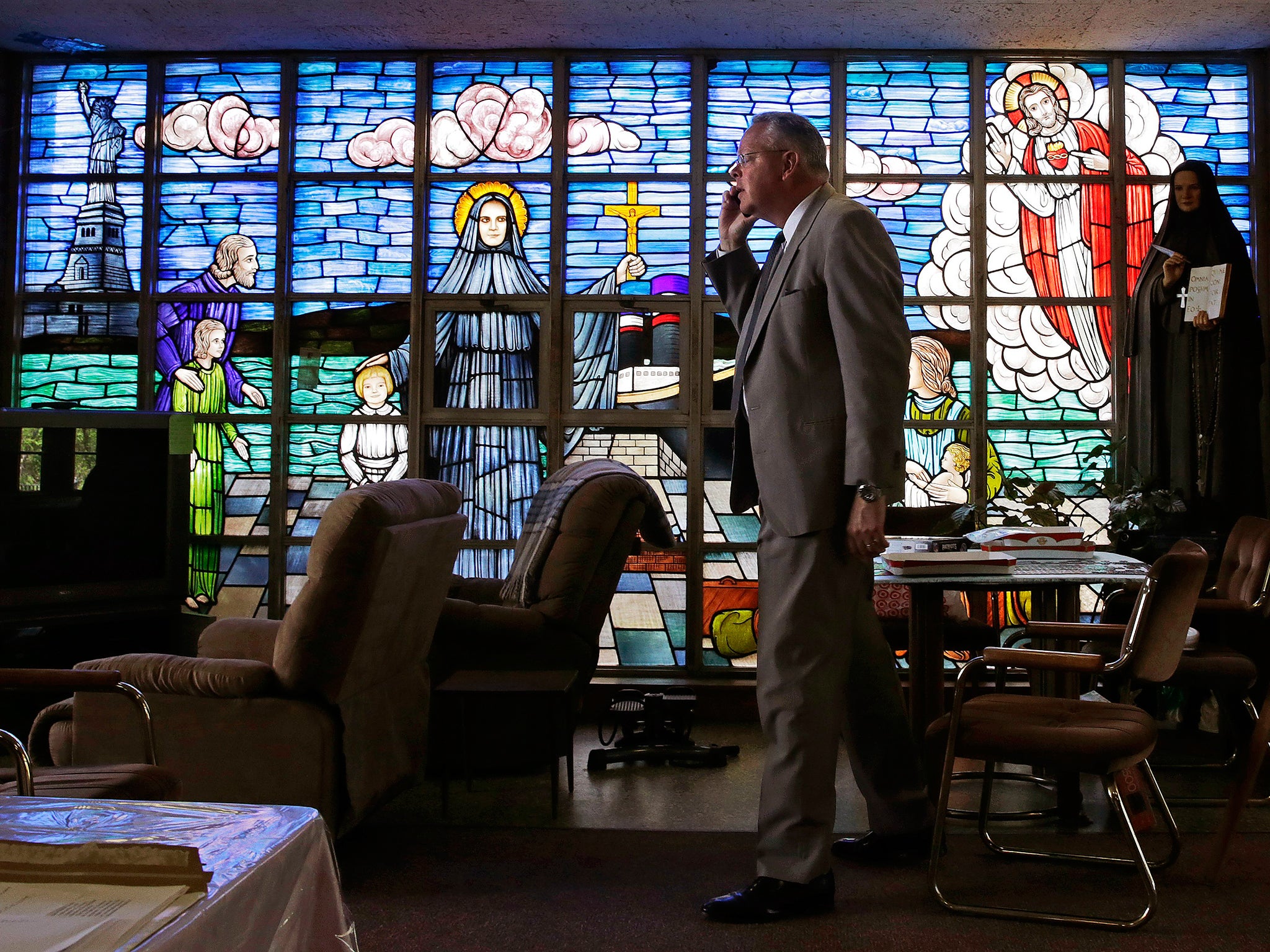After Supreme Court decision, worshipers abandon 12-year occupation of their church
They took their case to the courts in Massachusetts and to the Vatican too, but to no avail

Your support helps us to tell the story
From reproductive rights to climate change to Big Tech, The Independent is on the ground when the story is developing. Whether it's investigating the financials of Elon Musk's pro-Trump PAC or producing our latest documentary, 'The A Word', which shines a light on the American women fighting for reproductive rights, we know how important it is to parse out the facts from the messaging.
At such a critical moment in US history, we need reporters on the ground. Your donation allows us to keep sending journalists to speak to both sides of the story.
The Independent is trusted by Americans across the entire political spectrum. And unlike many other quality news outlets, we choose not to lock Americans out of our reporting and analysis with paywalls. We believe quality journalism should be available to everyone, paid for by those who can afford it.
Your support makes all the difference.Despondent members of a Massachusetts congregation have agreed to abandon their almost twelve-year occupation of their church after the US Supreme Court said it would not get involved.
Worshipers belonging to the Roman Catholic St Frances Xavier Cabrini church in the picturesque town of Scituate on Cape Cod Bay have been fighting to save the 1960s A-frame edifice, with its imposing stained glass windows and expansive grounds, since 2004 when the Archdiocese of Boston included it in a list of churches it wanted to close.
Their long quest to have the Archdiocese’s original decision reversed ended on Monday, however, when the US Supreme Court announced that it would not rule on the case.
“We made this deal with the lower courts that we would vacate the premises within 14 days of the Supreme Court decision,“ said Jon Rogers, a leader of the group that pursued the case, the Friends of St. Frances Xavier Cabrini. ”From the very beginning we have promised to exhaust every avenue of appeal available to us and we have now done that.”
While there have been other cases of congregations rebelling against proposed church closures, none became anything like as protracted - or as bitter - as the one in Scituate. Someone from the group has been in the church every hour of every day since the Archdiocese attempted to expel them from the premises just days after announcing its intention to close it.
“They came in under the cover of darkness, they ransacked the place and then they changed the locks,” Mr Rogers told The Independent during a visit to the church last year. So many years on, he was still unable to disguise his disdain for the Church leaders in Boston.
“They are the dark overlords and we are the serfs,” he said. “You will pay, pray and obey, that is what you will do. Oh no we won’t!” His group’s efforts even included filing appeals with the Vatican courts in Rome, but those too met a dead end.
The congregation asserted that their church in fact belonged to them and the community and not to the Archdiocese, in part because it was built with donations from the town.
They also noted that it sits on an especially valuable slot of land near the sea shore and the Church has been searching for ways to raise money to pay the bills stemming from its sexual predator scandal, which erupted at the same time the closure was announced.
The huge financial burden caused by the uncovering of dozens of priests abusing minors as well as falling Sunday attendance caused the Catholic Church to seek to close churches and other institutions, including Catholic schools, in Massachusetts and numerous other states. In New York, it has merged or closed about a third of its parishes.
“My whole life I have heard my pastor tell me from the altar that this is your church,” Mr Rogers said last year.
His wife, Maryellen, was similarly outspoken. “This is the only spiritual home I’ve known. When we gave our hard-earned money to the collection plate, we weren’t giving it to the Archdiocese of Boston or to the Vatican in Rome. We were giving it to our church. We, the people in the community, built this church ourselves. We donated the land.”
The occupation relied on church members signing the rota the was pinned just inside its doors to promise to man the fort. The church was never empty, come snow storm, power cut or whatever. For the night shift, it meant sleeping in a narrow single bed squeezed into a back room that used to be the confessional.
While there were services every Sunday, full mass was not possible because the church had been officially deconsecrated. On Monday Mr Rogers said that a last farewell service would be held on 29 May.
After that, it will be over to the wrecking ball and the bulldozers.
Join our commenting forum
Join thought-provoking conversations, follow other Independent readers and see their replies
Comments